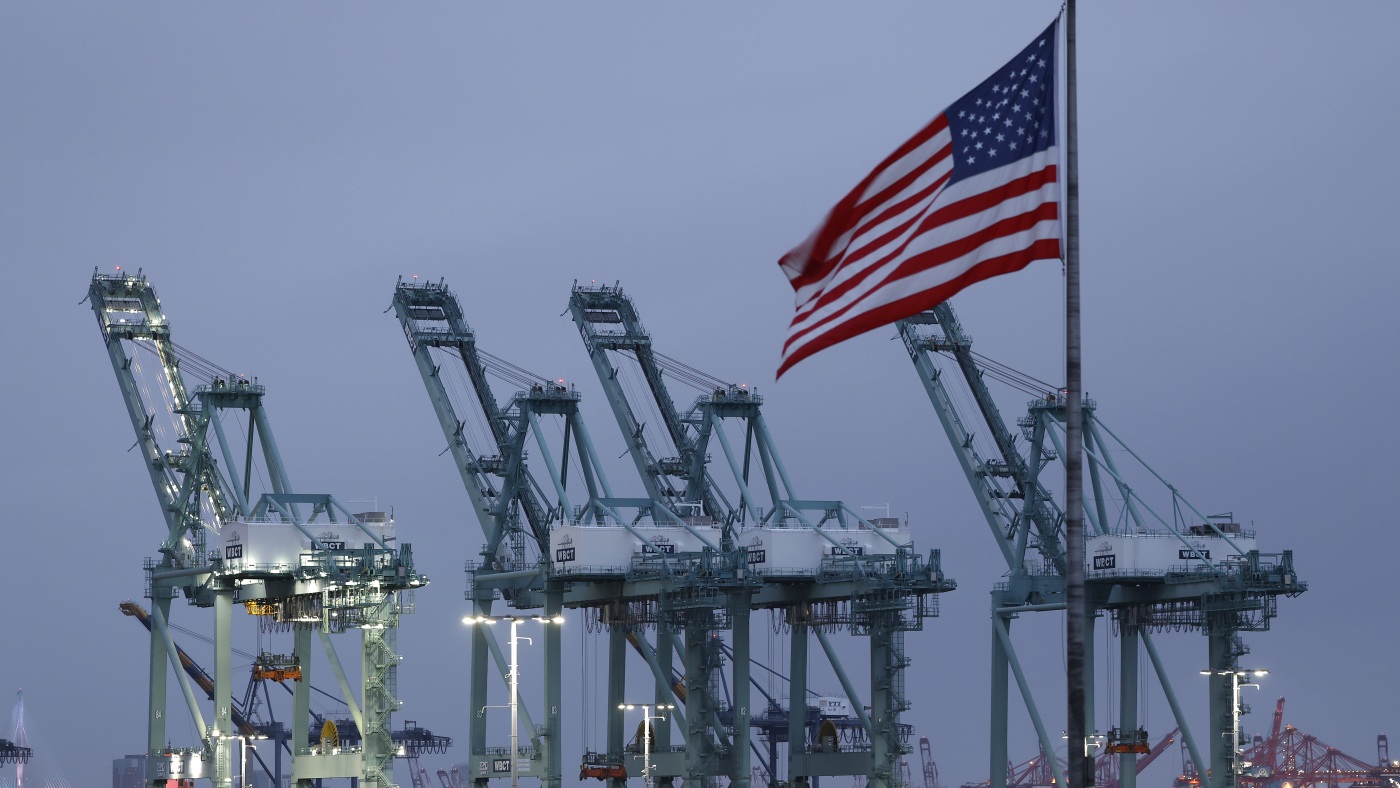Every weekday morning, dock workers gather outside the Dispatch Office of the International Longshore and Warehouse Union (ILWU) Local 13, hoping to secure work at the ports of Los Angeles and Long Beach. Typically, finding work is straightforward, with workers receiving a white slip detailing their assignment. However, on a recent Tuesday, many left without work.
“Less volume of cargo containers means less work for us,” said longshore worker Charlie Camacho, whose job involves loading and unloading shipping containers. “So we feel it, we definitely feel it,” he added.
The ports of Los Angeles and Long Beach form one of the busiest port complexes in the Western Hemisphere. Since tariffs on Chinese goods increased, port officials have anticipated and now confirmed a 35% drop in cargo compared to the same period last year.
This decline impacts businesses surrounding the ports, including trucking, shipping, and distribution centers. Port officials warn that the downturn will soon affect manufacturers, retailers nationwide, and consumers.
In 2024, about 31% of U.S. shipping container traffic passed through this port complex. Last year, the ports handled 19.9 million containers, but projections for 2025 indicate a decrease.
Camacho, whose family has worked at the ports for three generations, expressed pride in his role. However, his chances of finding work on that Tuesday were slim—approximately 25%. He ultimately left without a job.
The impact extends beyond longshore workers. Frank Groves, an independent salesman of gloves and safety gear to port workers, reported a nearly 75% drop in business. Rob Walpole, CEO of Customs Goods, noted significant reductions in import shipping volumes, affecting his company’s operations.
Gene Seroka, the executive director of the Port of Los Angeles, described the situation as concerning. The ports support 1 in 12 jobs in Los Angeles and Long Beach, with a broader economic impact nationwide.
Big importers warn that shortages could occur in four to six weeks as pre-tariff stockpiles deplete, potentially leading to price hikes.
Even if tariffs ease, challenges may persist due to the logistics of reserving vessels and specifying shipping times.
— new from NPR
